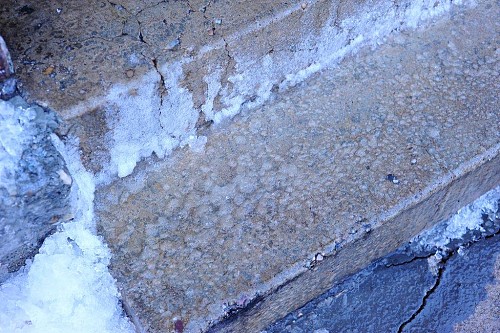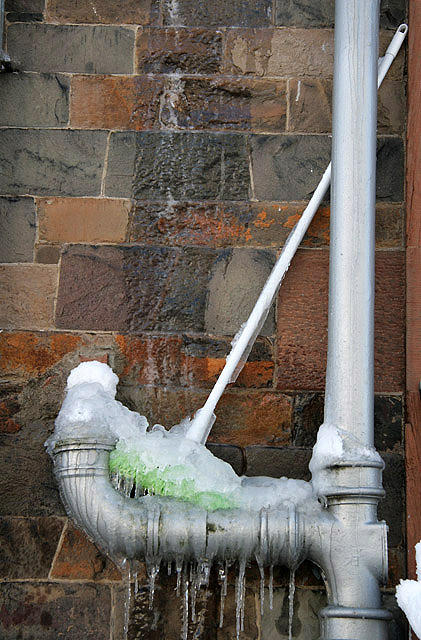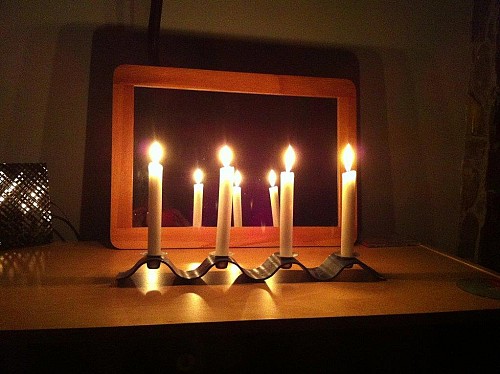5 Home Hacks That Will Make Mincemeat Of A Winter Mini-Emergency
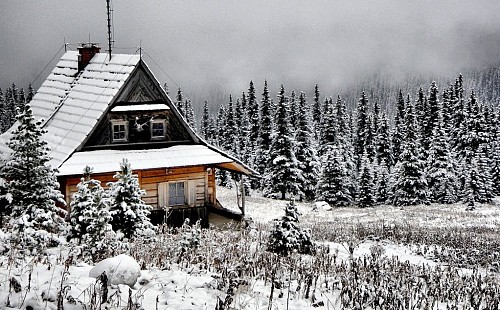
Don’t all those internet home hacks make awfully addictive reading? Like munching salted peanuts, it’s hard to stop at just one.
Problem is, often the hacks don’t really satisfy … meaning, most of those breathless tips won’t solve actual household problems or even do much good at all. (No, I’m not smearing my mirror with cucumber to prevent streaks. Been there, tried that, it doesn't work.)
What homeowners truly need is a collection of home hacks to cope with those minor household emergencies that crop up so often, especially in winter – not disasters, but pressing problems that demand help RIGHT NOW.
So here you go. You’re welcome.
- Icy Walkway
True story: A recent night’s freeze-thaw (or, in this case, thaw-freeze) left me with an icy, treacherously slippery front sidewalk. A quick trip to the nearest home center or local hardware store would yield a bag of commercial ice melt ... but first I had to get to the end of my walk without falling flat on my face.
After browsing through a bunch of ice melt home hacks, I opted to try sprinkling the surface with baking soda, the most promising-looking suggestion. How did it work out? Well, the baking soda got rid of all that ice pretty fast, and was an eco-friendly solution, too – although it did leave behind a powdery residue.
- Bad Smells
Any time of the year, bad smells are ... well ... bad news. That’s even more true in wintertime, when you can’t simply open a window and let balmy breezes air out your home. Fortunately, there are readily available solutions.
BAD KITCHEN SMELLS:
To absorb unpleasant kitchen odors, from frying fish to a burnt pot, leave out an open dish containing a cut lemon or ½ cup of white vinegar an hour or so; for stronger action, simmer the vinegar 10 minutes in a non-reactive stainless steel or enamel pot, together with a gallon of water. In either case, pour the (cool) vinegar down the kitchen drain when you’re done with it for more deodorizing.
BAD BATHROOM SMELLS:
Burning a match or sprinkling essential oil are tried and true solutions to bad bathroom smells. However, they share one shortcoming -- both methods are designed for the homeowner. But what about if you’re a guest in someone else’s house? That’s when a noxious odor can skyrocket from a nuisance to a minor disaster, as you fruitlessly search for matches, essential oil, industrial-strength room deodorizer... anything.
Rather than remain locked in the bathroom forever, you can borrow a little of your host’s scented shampoo. Flush, squirt a few drops of Herbal Essence or Pantene into the toilet, swish it around with the brush (they do have one of those, don’t they?), flush again, and you’re free to leave.
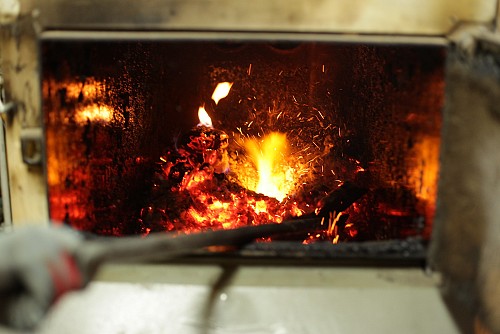
- Lack of Fire Starters
Uh oh. You suddenly discover that you’re out of fire starters, just before company’s due to arrive, Want to get a nice cozy blaze going in the fireplace in no time? Use newspaper for a no-cost solution; form twists for longer ignition action.
Oh, you get all your news online these days? Then start your fire with cotton balls instead; for convenience, stuff a couple into an old toilet paper tube.
DANGER: Avoid one of those uber-popular (and badly misguided) internet home hacks: dryer lint as a fire starter. Burning fibers from synthetic fabric will off-gas all kinds of bad stuff, chief among them carbon monoxide gas -- AKA the Silent Killer.
- Frozen Pipes
Frozen water pipes are one of winter’s nastier surprises... and it takes just one below-freezing night to cause them. Fortunately, you have a way to fight back. If you suspect your pipes have frozen (hard-to-miss clue: just a trickle of liquid – or nothing at all -- comes out when you twist the faucet), first check whether the pipe has actually burst; if so, you’ll need an emergency plumber.
Otherwise, turn the tap to the “On” position, then warm the frozen part of your piping with a blow dryer or heating pad. While it seems as if a space heater would make more sense, it can be a fire hazard if there is anything flammable. And avoid an open flame at all costs, or you’ll be faced with much more than a mini-emergency.
- Power Outage
When the power is out only in your house, inspect your breaker or fuse box; if it keeps tripping, find a reliable electrician. Otherwise check the electrical lines to your home; if they appear damaged, do NOT touch them. Call your utility company immediately.
When the outage is wider spread, try to find out how long it is expected to last.
For a short-term power failure, keep food in your fridge and freezer cold longer by covering with a blanket. Increase the effectiveness of an emergency lamp or even a candle by placing it next to a mirror, which will reflect the light (this hack courtesy of accuweather.com.)
Do you have electrical heat? Keep warm for the duration by dressing in multiple layers and heading to the basement, where warm ground temperatures will help to insulate your home.
If the power is predicted to be out for more than 24 hours, or if your household includes small children or frail individuals, you’re facing a more serious emergency. Head for a public shelter.
Laura Firszt writes for networx.com.
Looking for a Pro? Call us (866) 441-6648

Electrical Average Costs
Electricians Experiences

Smoke Detector Replacement Was Done Well And Saved Us Money

Do Your Homework Before You Have A New Water Heater Installed

